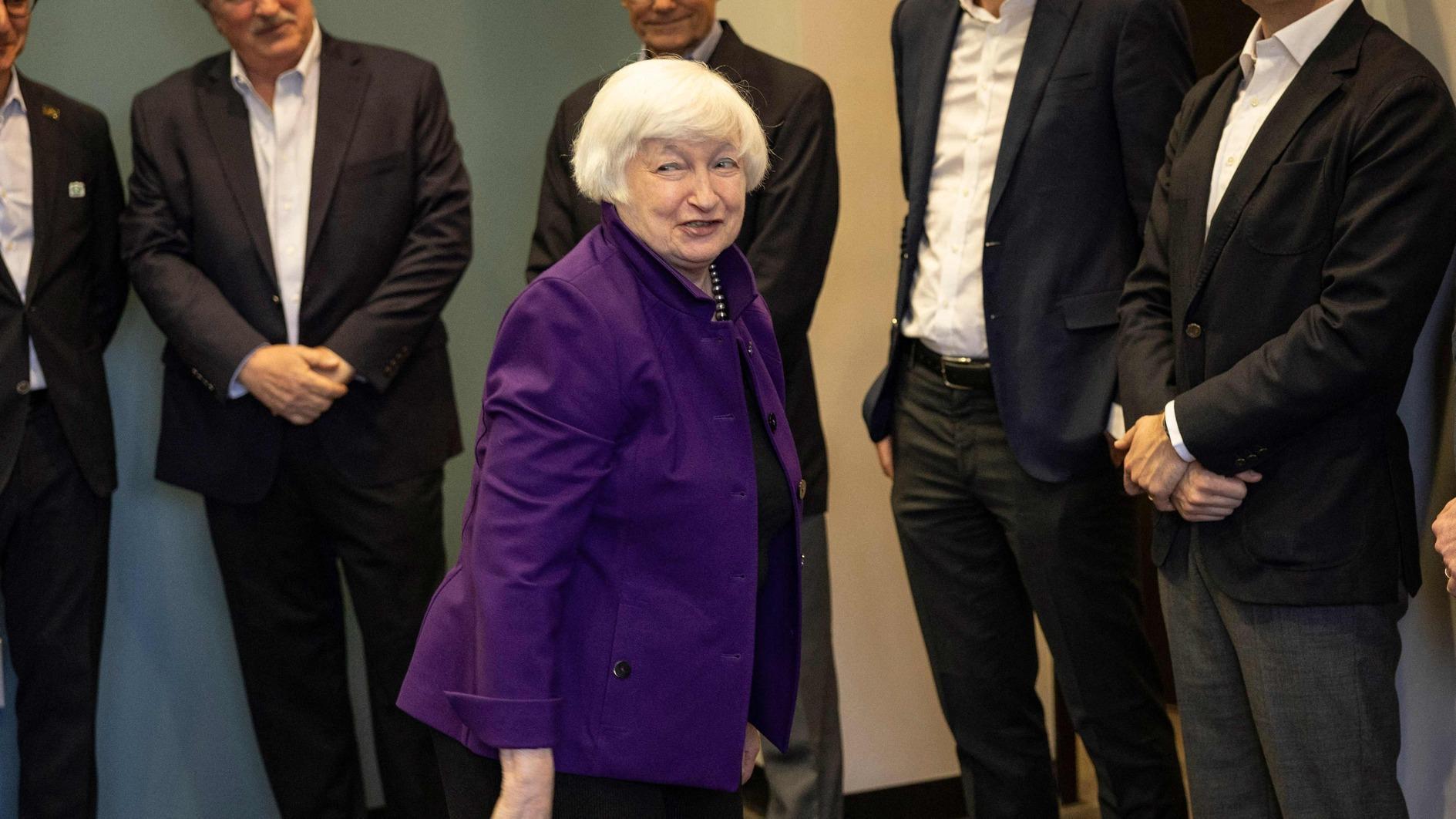
Since U.S. Treasury Secretary Janet Yellen visited Beijing last year, the world's two biggest economies have resumed regular talks and averted major escalations in tensions.
But the countries still trade barbs on economic issues as they battle for superiority in advanced technologies and work to secure critical supply chains.
As Yellen arrives in China on Thursday, what issues does she face?
Industrial overcapacity
Washington is wary that cheap Chinese exports could flood global markets, citing green energy sectors like solar and electric vehicles.
The United States is working to build its own supply chains in these areas.
Chinese banks have facilitated major new borrowing for the country's manufacturing sectors, extending it nearly $700 billion in new loans in the third quarter of 2023, from the prior year, said the Atlantic Council. It added this was often at below-market interest rates.
With new factories making products from EVs to batteries, there are fears Beijing could lean on the global market to absorb production that domestic demand cannot absorb.
"That's going to have an impact not only on advanced countries like the United States and (in) Europe, but also on many developing countries," said Asia Society Policy Institute vice president Wendy Cutler.
China has acknowledged risks from overcapacity but it is unclear if Beijing will take concrete steps to address this.
"Beijing and Washington are unlikely to see eye-to-eye on the issues of overcapacity," added Yun Sun, senior fellow at the Stimson Center.
China will see the focus on overcapacity in clean energy as a new U.S. strategy to choke Chinese exports, she added.
Treatment of businesses
A third of companies report being treated less favorably by Chinese authorities compared with local competitors, said a business survey released in February by the American Chamber of Commerce in China.
It is a longstanding problem, with firms flagging unfair treatment in market access and regulatory enforcement.
When Yellen visits Guangzhou city in her upcoming trip, she is expected to meet with representatives from U.S. firms to hear their concerns.
In December, she urged Beijing to shift from a state-driven approach in economic policy, which would make China more attractive to foreign companies.
The call comes as China works to attract foreign investment with economic growth set to slow.
Beijing's efforts will likely bear fruit given China's market size, but Bill Bishop, who publishes the Sinocism newsletter, warned that businesses may have "promise fatigue."
There is "a desire to actually see some more concrete and structural actions as opposed to just another set of nicely worded documents and promises from leaders," he said.
National security
National security looms large over U.S.-China economic ties too, with Washington pushing a "small yard and high fence" approach that Beijing has warned against.
In February, President Joe Biden issued an executive order aimed at preventing sensitive U.S. personal data from being accessed by countries including China.
Last August, the Treasury was also asked to set up a program monitoring U.S. outbound investments involving China for sensitive sectors — to prohibit certain transactions or require notifications for them.
These include semiconductors and artificial intelligence, with regulations to come.
Chinese Foreign Minister Wang Yi has since warned that Washington's AI approach could bring mistakes with historic consequences.
National security concerns are also behind efforts to force a divestment of TikTok from Chinese parent company ByteDance, and a probe into internet-connected vehicles.
'Friendshoring' and competition
Another area of tension is Washington's "friendshoring" strategy — to locate critical supply chains among allies and partners.
This is reflected in policies like the Inflation Reduction Act which includes consumer subsidies for EVs made in North America and involving countries the United States has free trade agreements with.
While Yellen has said the world is big enough for both countries to thrive, Chinese Premier Li Qiang slammed efforts to "de-risk" the economies as a "false proposition."
China's new climate chief Liu Zhenmin recently took aim at measures made in the name of "de-risking," calling them an obstacle to the green transition.
China has hit back as the Biden administration stepped up efforts to restrict Chinese firms' access to advanced semiconductors, saying such moves aim to maintain U.S. supremacy in the field.
Beijing has imposed export controls on metals critical for making semiconductors, while barring the use of U.S. chipmaker Micron's chips from critical infrastructure projects.